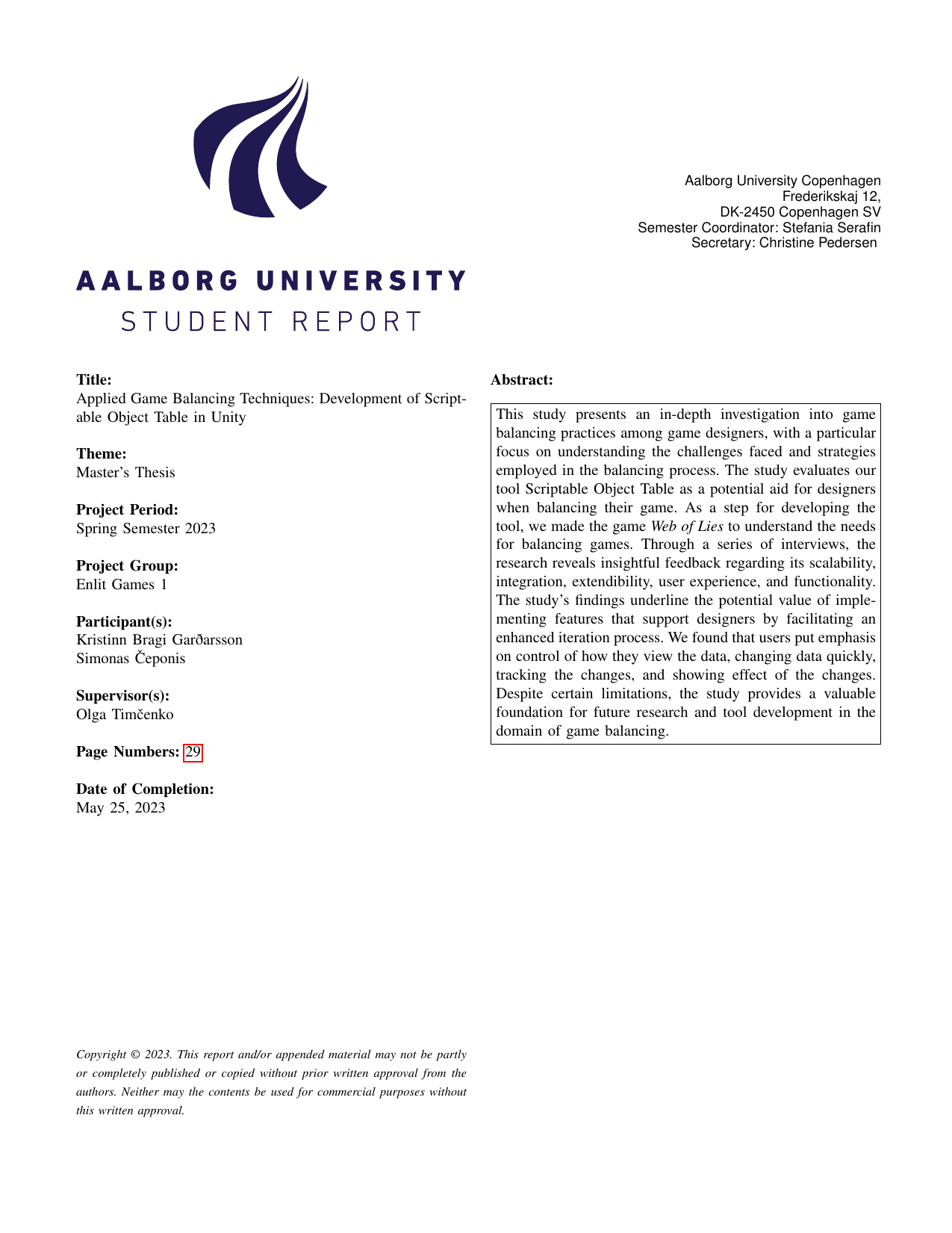
Applied Game Balancing Techniques: Development of Script- able Object Table in Unity
Authors
Term
4. term
Education
Publication year
2023
Submitted on
2023-05-24
Abstract
This study presents an in-depth investigation into game balancing practices among game designers, with a particular focus on understanding the challenges faced and strategies employed in the balancing process. The study evaluates our tool Scriptable Object Table as a potential aid for designers when balancing their game. As a step for developing the tool, we made the game Web of Lies to understand the needs for balancing games. Through a series of interviews, the research reveals insightful feedback regarding its scalability, integration, extendibility, user experience, and functionality. The study’s findings underline the potential value of imple- menting features that support designers by facilitating an enhanced iteration process. We found that users put emphasis on control of how they view the data, changing data quickly, tracking the changes, and showing effect of the changes. Despite certain limitations, the study provides a valuable foundation for future research and tool development in the domain of game balancing.
This study presents an in-depth investigation into game balancing practices among game designers, with a particular focus on understanding the challenges faced and strategies employed in the balancing process. The study evaluates our tool Scriptable Object Table as a potential aid for designers when balancing their game. As a step for developing the tool, we made the game Web of Lies to understand the needs for balancing games. Through a series of interviews, the research reveals insightful feedback regarding its scalability, integration, extendibility, user experience, and functionality. The study’s findings underline the potential value of imple- menting features that support designers by facilitating an enhanced iteration process. We found that users put emphasis on control of how they view the data, changing data quickly, tracking the changes, and showing effect of the changes. Despite certain limitations, the study provides a valuable foundation for future research and tool development in the domain of game balancing.
Documents
